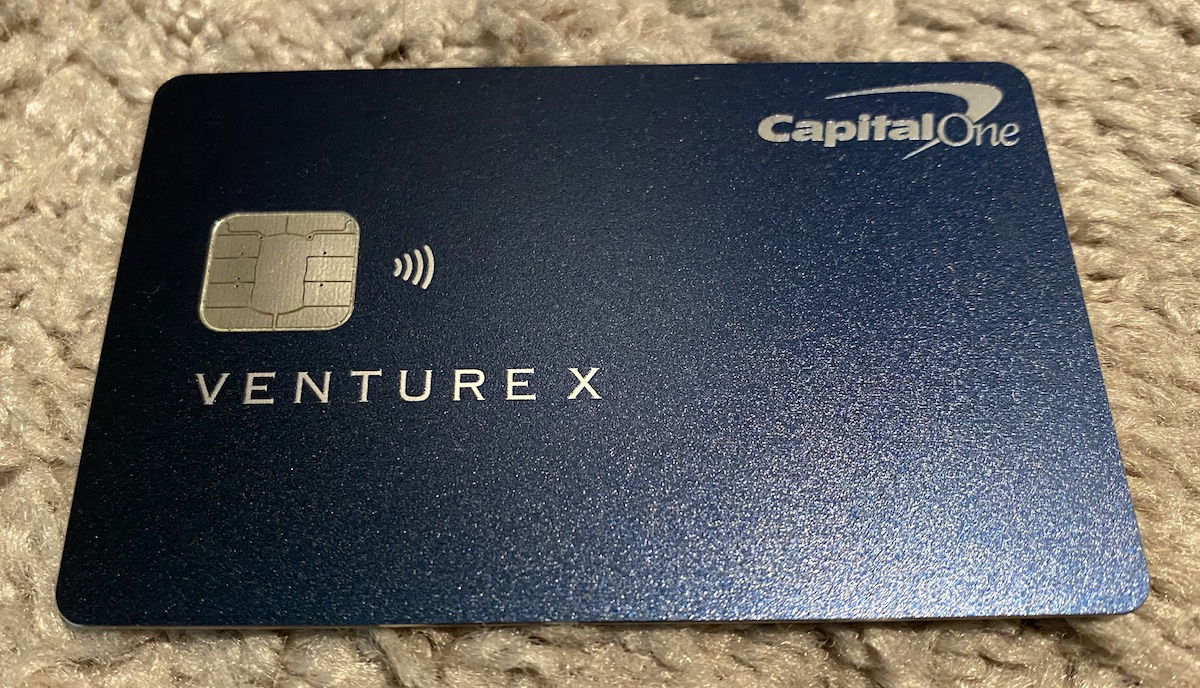Link: Learn more about the Capital One Venture Rewards Credit Card or Capital One Venture X Rewards Credit Card
For those of us in the points world, Capital One has become an increasingly interesting card issuer in recent years, as Capital One’s mileage program has continued to improve.
Capital One’s most popular travel card portfolio is the Venture Card, but nowadays there are three versions of the card. In this post, I wanted to take a closer look at those three cards, and help anyone who might be trying to decide between these different products. Is there a clear winner?
In this post:
The three Capital One Venture Card products
There are three different “flavors” of the Capital One Venture, all going after a different consumer base:
- The Capital One VentureOne Rewards Credit Card has no annual fee
- The Capital One Venture Rewards Credit Card has a $95 annual fee
- The Capital One Venture X Rewards Credit Card has a $395 annual fee
Which of these cards is the best value? Let’s first go over the basics of these cards, and then we’ll take a look at which of these cards makes the most sense.
Capital One VentureOne Card basics
The Capital One VentureOne Card is the no annual fee card in the portfolio:
- It has no annual fee
- It has a welcome offer of 20,000 Capital One miles after spending $500 within three months
- It offers 1.25x Capital One miles per dollar spent, with no foreign transaction fees
Being able to earn rewards that can be converted into airline miles on a no annual fee card is awesome, especially as the card doesn’t have foreign transaction fees. However, for most consumers I think there’s value in paying an annual fee to get a more lucrative card.
Read a full review of the Capital One VentureOne Card.

Capital One Venture Card basics
The Capital One Venture Card is the mid-range card in the portfolio:
- It has a $95 annual fee
- It has a limited-time welcome offer where you can enjoy $250 to use on Capital One Travel in your first cardholder year, plus earn 75,000 bonus miles once you spend $4,000 on purchases within the first 3 months from account opening
- It offers 2x Capital One miles per dollar spent, with no foreign transaction fees, making it one of the best cards for everyday spending
- It offers perks like a Global Entry or TSA PreCheck credit once every four years and two Capital One Lounge visits per year
For someone who is willing to pay a reasonable annual fee but wants a rewarding card, the Capital One Venture Card is tough to beat. You’re earning an excellent return on everyday spending, and you get some perks that could help offset the annual fee.
Read a full review of the Capital One Venture Card.

Capital One Venture X Card basics
The Capital One Venture X Card is the premium card in the portfolio:
- It has a $395 annual fee
- It has a welcome offer of 75,000 Capital One miles after spending $4,000 within three months
- It offers 2x Capital One miles per dollar spent with no foreign transaction fees
- It offers endless perks, including a $300 annual travel credit, 10,000 anniversary bonus miles, a Priority Pass™ Select membership, access to Capital One Lounges, access to Capital One Landings, access to Plaza Premium Lounges, primary rental car coverage, and cell phone protection.
If you travel with any frequency, it should be really easy to justify the annual fee on this card. Personally, I value the $300 annual travel credit and 10,000 anniversary bonus miles at more than the $395 annual fee, so everything else is just the icing on the cake.
Read a full review of the Capital One Venture X Card.

Which Capital One Venture Card should you apply for?
How should you decide whether to apply for the Capital One VentureOne Card, Capital One Venture Card, or Capital One Venture X Card? While not everyone is going to agree on the best strategy, let me share some general things to consider.
The cards aren’t mutually exclusive
The first thing to understand is that you could actually apply for multiple of these cards. The bonus on each version of the Venture Card is a one-time offer. However, if you’ve had the Capital One Venture Card in the past (or even if you still have it), you’d still be eligible for the bonus on the Capital One Venture X Card.
Therefore deciding which card to apply for doesn’t have to be very high stakes.

You have the option of upgrading or downgrading cards
Credit card issuers generally let you upgrade or downgrade cards within the same product family, as long as you’ve had a card for at least 12 months. This won’t always be possible, but more often than not it is. That means you could apply for one card in the Venture lineup, and then if you later decide that another card is a better fit for you, you can product change to that.

Go after a big welcome bonus
There’s a significant difference in terms of the welcome bonuses here. The Capital One VentureOne Card offers a bonus of 20,000 miles, while both the Capital One Venture Card and Capital One Venture X Card offer a significantly larger bonus.
Capital One miles can be redeemed for a minimum of one cent each toward a travel purchase, though personally, I value them at 1.7 cents each, for the ability to convert them into airline miles and hotel points. So there’s a difference of at least $550 between the value of just the points in these bonuses (75,000 miles vs. 20,000 miles), and by my valuation, there’s a difference of $935 between the value of the points.
That’s a reason to pick up one of the premium cards, and if you later decide it’s not a good fit for you, there should be the option to downgrade.

The value of 1.25x miles vs. 2x miles
The Capital One VentureOne Card offers 1.25x miles per dollar spent, while the Capital One Venture Card and Capital One Venture X Card offer 2x miles per dollar spent. So how should you account for the difference in value there?
- At a valuation of 1.0 cents per mile, that’s a difference in return of 0.75% on spending
- At a valuation of 1.7 cents per mile, that’s a difference of 1.275% on spending
To keep things simple, let’s compare the no annual fee Capital One VentureOne Card and $95 annual fee Capital One Venture Card, and how quickly you could recoup the annual fee. With the difference of 0.75 Capital One miles per dollar spent:
- If you value miles at 1.0 cents each (based on the ability to redeem them as cash toward travel purchases), then you’d come out ahead with the Venture over the VentureOne if you spend at least $12,667 per year
- If you value miles at 1.7 cents each (based on the ability to convert them into airline miles at a 1:1 ratio), then you’d come out ahead with the Venture over the VentureOne if you spend at least $7,451 per year
This doesn’t even factor in the other perks offered by the more premium versions of the card, like a TSA PreCheck or Global Entry credit, etc.

Why the Capital One Venture X is the no-brainer
I think most people can agree that it makes sense to apply for the Capital One Venture Card over the Capital One VentureOne Card, even if they ordinarily prefer cards without annual fees. The welcome bonus is much better, as is the return on spending. You should be able to downgrade the card after a year if you decide it doesn’t make sense to you.
But should you instead pay an extra $300 in annual fees and get the Capital One Venture X Card? Personally I think the math there potentially checks out as well:
- You’ll get a $300 Capital One Travel portal credit, which you can use to book a $300 flight or hotel; that right there should recoup the difference on an ongoing basis
- You’ll get a Priority Pass™ Select membership, offering you access to the biggest lounge network in the world, plus access to Plaza Premium Lounges
- You’ll get access to Capital One Lounges and Capital One Landings, which are both growing networks
- If you keep the card for a second year, you’ll also get 10,000 anniversary bonus miles
And there are many, many other perks. The Capital One Venture X is really a premium credit card that makes sense even for people who don’t usually get premium credit cards. If you can get over the initial “sticker shock” of paying a $395 annual fee, you’ll quickly get outsized value from the card.

Bottom line
Capital One’s Venture lineup consists of the Capital One VentureOne Card, Capital One Venture Card, and Capital One Venture X Card. Each card has a unique value proposition:
- The Capital One VentureOne Card is great for having no annual fee, no foreign transaction fees, and earning transferable points
- The $95 annual fee Capital One Venture Card is one of the most rewarding mid-range cards for everyday spending, and it has a great welcome offer
- The $395 annual fee Capital One Venture X Card builds on the basics of the Venture Card, but offers worthwhile perks that should justify the fee
You can’t go wrong with any of these cards, though personally, I’d apply for one of the premium cards for the much better welcome bonus, and then you could always downgrade the card at a later point. I think the Capital One Venture Card is the best option if you’re looking for the best welcome offer, while the Capital One Venture X Card is the most compelling in terms of the long term perks.
What’s your take on which Capital One Venture Card is best?





There is actually a point to having both cards.
The Venture gives a $50 experience chit per stay for the hotels in their Lifestyle collection.
That benefit is not shared with the Venture X. Thus if you stay at Lifestyle Collection hotels two times or more, the card can be free.
Merry Christmas!